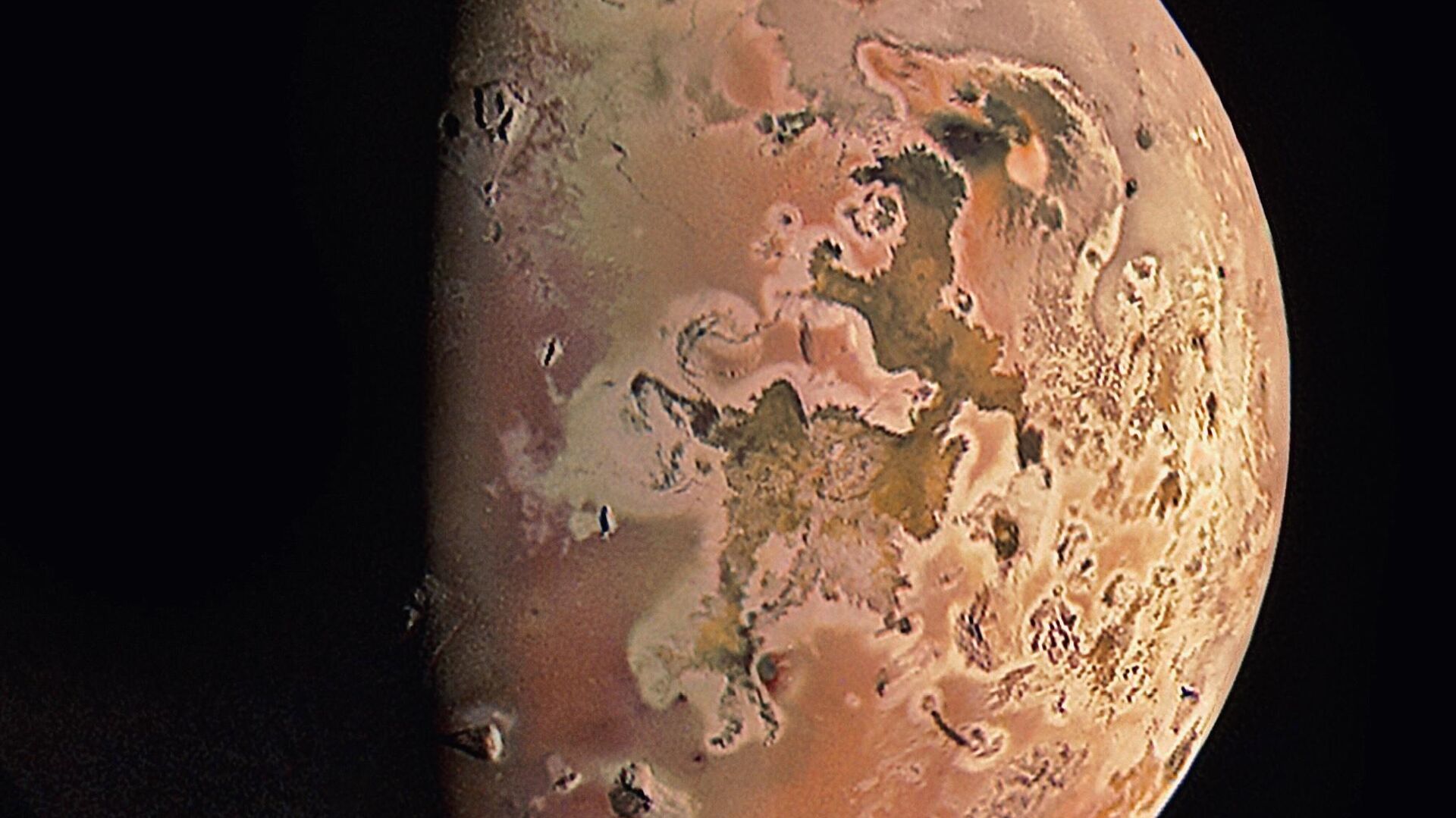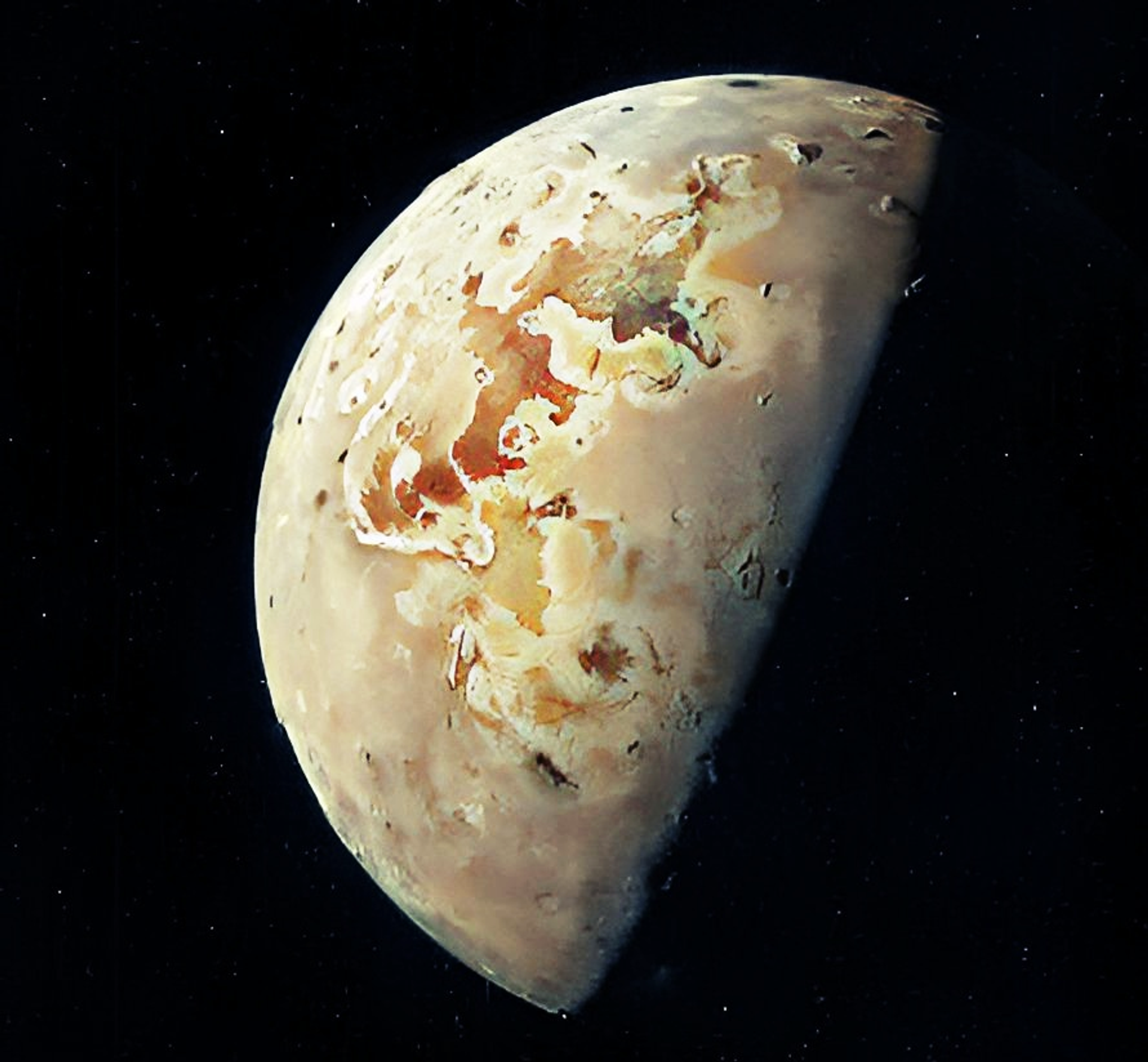https://sputnikglobe.com/20231018/nasa-captures-jaw-dropping-image-of-jupiters-fire--ice-moon-io-1114275566.html
NASA Captures Jaw-Dropping Image of Jupiter’s Fire & Ice Moon Io
NASA Captures Jaw-Dropping Image of Jupiter’s Fire & Ice Moon Io
Sputnik International
Juno's original mission first wrapped in July of 2021, but it has since then been given an extended mission with a deadline set for 2025. The probe has sent incredible images back to Earth.
2023-10-18T03:50+0000
2023-10-18T03:50+0000
2023-10-18T03:46+0000
beyond politics
space exploration
space
nasa
nasa probe
juno
jupiter
https://cdn1.img.sputnikglobe.com/img/07e7/0a/12/1114274871_0:745:2047:1896_1920x0_80_0_0_17e9300091180fbb9119fe0f90ef8914.jpg
NASA’s Juno probe is shocking human beings on Earth with its new, incredible images of the Io - known as one of the third-largest moons in Jupiter's orbit.The probe’s original mission first wrapped in July of 2021, but it has since then been given an extended mission with a deadline set for 2025.Jupiter’s moon, which is made up of fire and ice, has a surface temperature of negative 250 degrees Fahrenheit, but is covered in more than 400 active volcanoes which produce hot lava that can reach temperatures of 3,000 degrees Fahrenheit (1,000 degrees hotter than on Earth).And if that doesn’t already sound like a terrifying place to visit, the moon also features large lakes of lava that are more than 100 miles across in length, changing volcanic deposits, as well as fountains of fire that unpredictably erupt.Io is one of Jupiter’s 95 known moons, and is one of the four largest. The other three include: Europa, Ganymede and Callisto.Juno was able to pass by the dangerously terrifying moon, which is just slightly larger than Earth's moon, at a safe distance of 11,645 kilometers on October 16. But on Juno’s current orbit, it will steadily get closer to the moon, until in February of 2024 it will be within 1,500 kilometers of Io’s surface. The probe is expected to take more exciting images, as it inches closer to the fire and ice moon.
Sputnik International
feedback@sputniknews.com
+74956456601
MIA „Rossiya Segodnya“
2023
News
en_EN
Sputnik International
feedback@sputniknews.com
+74956456601
MIA „Rossiya Segodnya“
Sputnik International
feedback@sputniknews.com
+74956456601
MIA „Rossiya Segodnya“
io moon, jupiter, space exploration, science, nasa
io moon, jupiter, space exploration, science, nasa
NASA Captures Jaw-Dropping Image of Jupiter’s Fire & Ice Moon Io
NASA’s Juno mission was first launched with the goal to peer below the planet's dense clouds and learn about the largest planet in our solar system, including how the celestial body has changed since its formation.
NASA’s Juno
probe is shocking human beings on Earth with its new, incredible images of the Io - known as one of the third-largest moons in Jupiter's orbit.
The probe’s original mission first wrapped in July of 2021, but it has since then been given an extended mission with a deadline set for
2025.
Jupiter’s moon, which is made up of fire and ice, has a surface temperature of negative 250 degrees Fahrenheit, but is covered in more than 400 active volcanoes which produce hot lava that can reach temperatures of 3,000 degrees Fahrenheit (1,000 degrees hotter than on Earth).
And if that doesn’t already sound like a terrifying place to visit, the moon also features large lakes of lava that are more than 100 miles across in length, changing volcanic deposits, as well as fountains of fire that unpredictably erupt.
Io is one of Jupiter’s 95 known moons, and is one of the four largest. The other three include: Europa, Ganymede and Callisto.
Juno was able to pass by the dangerously terrifying moon, which is just slightly larger than Earth's moon, at a safe distance of 11,645 kilometers on October 16. But on Juno’s current orbit, it will steadily get closer to the moon, until in February of 2024 it will be within 1,500 kilometers of Io’s surface. The probe is expected to take more exciting images, as it inches closer to the fire and ice moon.



